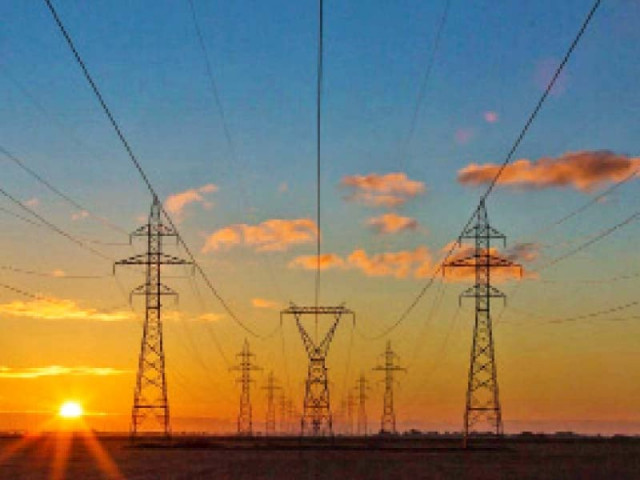Experts urge shift of CPPs to grid
Say transition can reduce gas consumption and cut electricity costs

Energy experts have urged the government to facilitate the immediate transition of Captive Power Plants (CPPs) to the grid system. They emphasised that this measure would not only stimulate power demand in the country but also make significant amounts of natural gas available for the power sector, aligning with the National Gas Allocation Policy of 2005 and Gas Supply Priority by the Economic Coordination Committee (ECC) in 2024. They also stressed the need for a thorough audit of CPPs to accurately assess their claimed efficiency levels.
These recommendations were made during a session titled "Energy Priorities in Crisis: Navigating Gas Supply Cuts to Captive Power Plants in Pakistan," organised by the Institute of Policy Studies (IPS) on Thursday. The session aimed to analyse the government's commitment to the International Monetary Fund (IMF) to phase out gas supplies to CPPs, optimising energy resources.
"Currently, there are an estimated 1,180 captive units in the country consuming approximately 358 MMCFD of natural gas, while there are 400,000 industrial consumers dependent upon the grid," said Wali Farooqui, Research Officer at IPS. He added that if industries with captive power plants transitioned to the grid, the benefits would be manifold, including reduced electricity prices due to natural gas reallocation, stimulation of national power demand to reduce capacity payments, and increased revenue for DISCOs, thereby easing the circular debt burden.
Speaking on the occasion, Bilal A Shaikh, Director of Energy Business at Technology Solution Provider, noted that gas utilisation efficiency in most CPPs was low despite claims of being above 60% or 65%, which he argued were not factually correct. He clarified that gas diverted to grid-based power plants could bring greater stability without revenue loss. Shaikh warned that continuing to supply gas to these CPPs would jeopardise grid stability in the country. He also lamented the lack of data-driven policy decisions and the country's data scarcity.
Abu Bakar, Head of Energy & Sustainability at Amreli Steels, pointed out that policymakers in Pakistan often fail to update outdated policies, which leads to long-term challenges. He highlighted the provision of gas to CPPs instead of prioritising the grid as a prime example. "The biggest challenge faced by the industry is the higher grid cost. If gas had been provided to the grid instead of CPPs, electricity costs would have been balanced to some extent," he stated. Bakar suggested that reducing grid costs and establishing proper energy markets with fair pricing mechanisms should be priorities.
Rehan Jawed, a prominent industrialist, praised Pakistan's grid code, which allows only 5% fluctuation compared to 10% in countries like Germany. However, he criticised the excessive resource consumption by CPPs despite their lower efficiency and unverified claims of 72% efficiency. Jawed cited their resistance to audits and their lobbying efforts to remove audit clauses on gas prices in the past. He highlighted that CPPs impose significant financial burdens on industrial consumers, with capacity charges of up to Rs5 per unit resulting in annual costs of Rs295 billion borne by grid users.
To address these inefficiencies, Jawed proposed incentivising CPPs to transition to the grid by offering temporary discounts and prioritising efficient plants in the merit order. He emphasised that since 2013, CPPs have significantly contributed to energy losses due to rising gas prices and inefficient operations. Jawed also highlighted misleading efficiency calculations by some CPP owners, who include both steam and electricity in their assessments. He argued that with surplus electricity available in Pakistan, cheaper alternatives like biomass and coal should be considered for steam production.
Asad Mahmood, an energy expert, underscored the importance of improving coordination among government departments to enhance energy management and align policies with ground realities. While acknowledging CPPs' role in the industrial sector, he advocated for a shift toward greater grid reliance to create a balanced energy landscape. Mahmood emphasised that industries would prioritise the grid if assured of uninterrupted, high-quality power, helping to address high capacity costs. He also called for timely energy audits, better data collection, and productivity handbooks to enhance efficiency and attract favourable tariffs for industries.
Asim Riaz, Energy Adviser at the All Pakistan Textile Mills Association (APTMA), advocated for a transparent and liberalised gas market where the most efficient plants are prioritised. He argued that scarce resources should not be arbitrarily allocated without ensuring market equilibrium and stressed that transitioning to the grid should be economically viable. Riaz supported the call for audits of CPPs.



















COMMENTS
Comments are moderated and generally will be posted if they are on-topic and not abusive.
For more information, please see our Comments FAQ